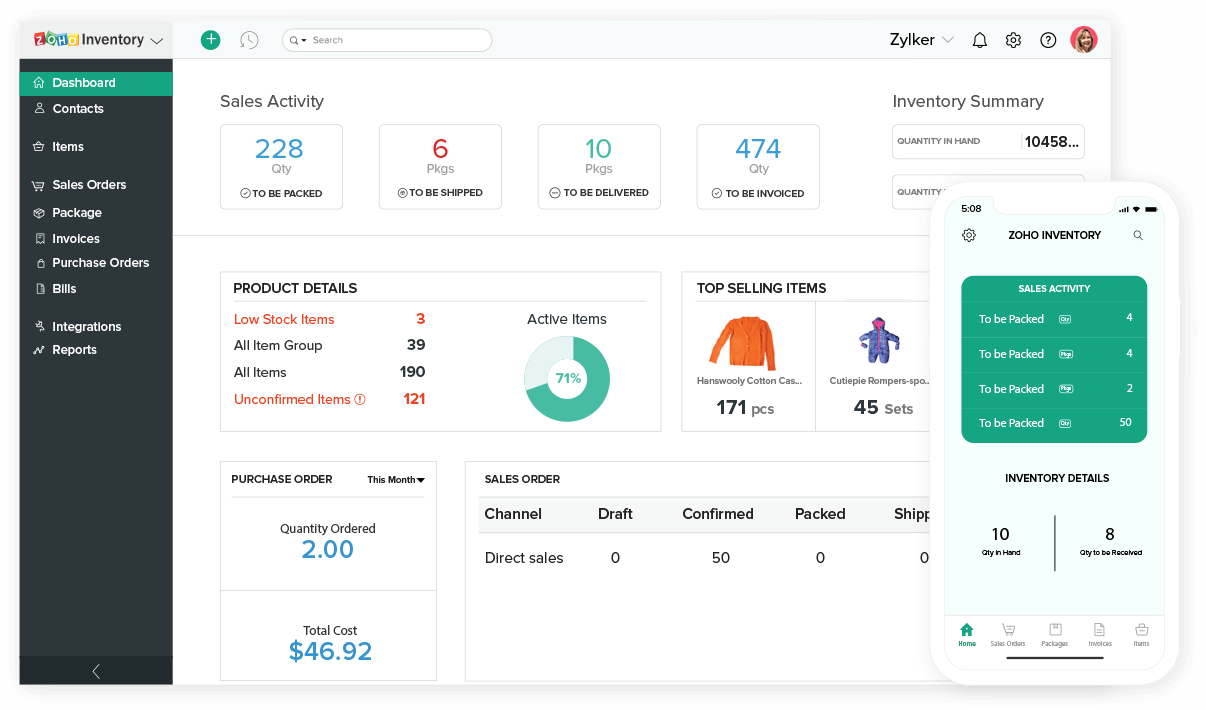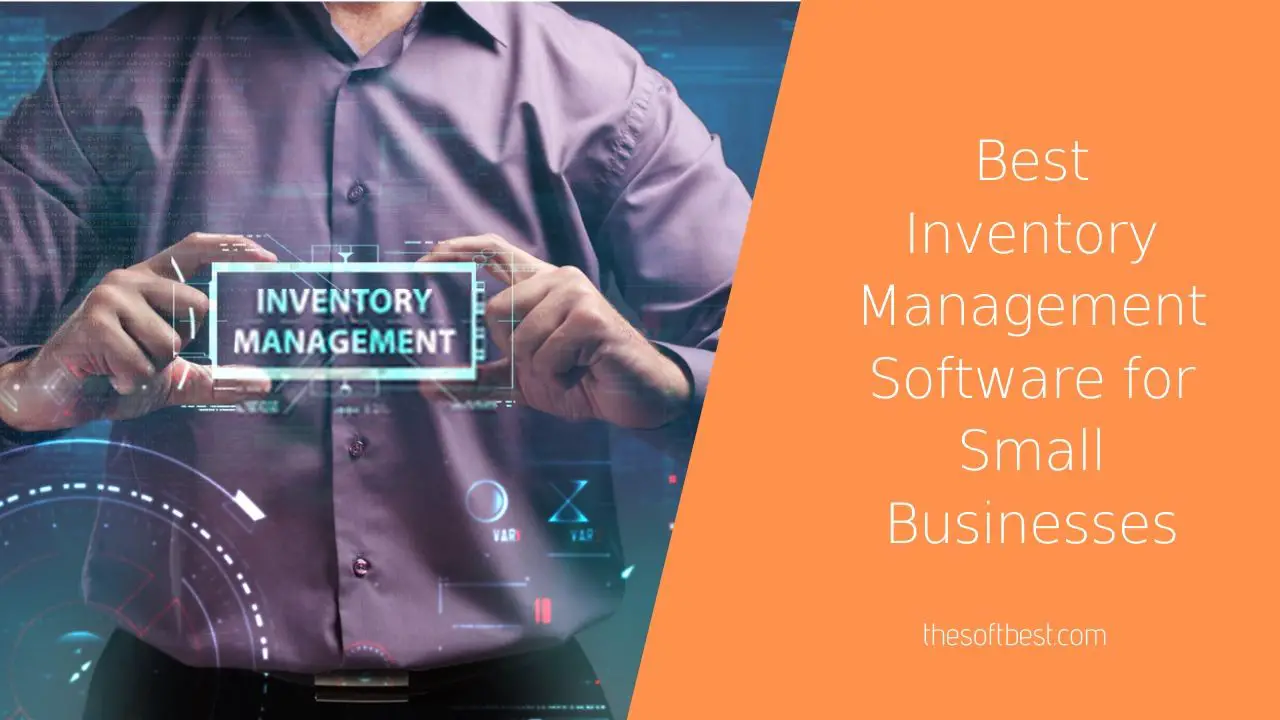Best inventory management software for small businesses empowers entrepreneurs with the tools they need to streamline operations, optimize stock levels, and drive growth. In this comprehensive guide, we delve into the key features, compare popular software options, and explore best practices to help you choose and implement the right solution for your business.
From ease of use and affordability to scalability and mobile accessibility, we’ll cover the essential considerations for small businesses. We’ll also provide real-world case studies and success stories to demonstrate the transformative impact of effective inventory management.
Key Features for Small Businesses

Small businesses have unique inventory management needs, such as ease of use, affordability, scalability, and mobile accessibility. Let’s explore these essential features in detail:
Ease of Use
Small businesses often have limited resources and time for training. Intuitive and user-friendly software allows employees to quickly learn and manage inventory effectively, saving time and reducing errors.
Affordability
Budget constraints are a major concern for small businesses. Affordable software with flexible pricing options enables them to optimize inventory management without breaking the bank.
Scalability
As businesses grow, their inventory needs evolve. Scalable software can adapt to changing requirements, accommodating increased inventory volume and complexity without requiring major overhauls.
Mobile Accessibility
In today’s mobile world, accessing inventory information on the go is crucial. Mobile-friendly software allows business owners and employees to manage inventory from anywhere, enhancing efficiency and responsiveness.
Comparison of Popular Software Options
Navigating the plethora of inventory management software can be overwhelming for small businesses. To simplify your decision-making process, we have compiled a comparative analysis of some of the most popular options, considering their key features, pricing, and customer reviews.
The following table provides a comprehensive overview of these software solutions, enabling you to make an informed choice that aligns with your specific business needs.
Table: Popular Inventory Management Software Comparison
| Software Name | Key Features | Pricing | User Ratings |
|---|---|---|---|
| QuickBooks Online | – Comprehensive accounting and inventory management – Customizable reports and dashboards – Integrations with third-party apps |
– Starting from $25/month | – 4.5/5 stars on G2 |
| Zoho Inventory | – Real-time inventory tracking – Barcode scanning and multi-location management – Dropshipping and order fulfillment |
– Starting from $49/month | – 4.2/5 stars on Capterra |
| Shopify | – E-commerce platform with inventory management – Built-in payment processing and marketing tools – App marketplace for customization |
– Starting from $29/month | – 4.4/5 stars on Trustpilot |
| Square | – Point-of-sale (POS) system with inventory management – Payment processing and employee management – Integrations with other Square products |
– Starting from $60/month | – 4.1/5 stars on G2 |
| TradeGecko | – Multi-channel inventory management – Advanced reporting and analytics – Integrations with ERP systems |
– Starting from $399/month | – 4.3/5 stars on G2 |
Integration with Other Business Systems
Integrating inventory management software with other business systems is crucial for small businesses to streamline operations, enhance efficiency, and gain a holistic view of their business.
By connecting inventory management software with accounting systems, businesses can automate inventory transactions, eliminate manual data entry, and ensure accurate financial reporting. Integration with e-commerce platforms enables real-time inventory updates, allowing businesses to fulfill orders seamlessly and avoid overselling.
Integration with CRM
Integrating inventory management software with customer relationship management (CRM) systems provides a comprehensive view of customer interactions and inventory levels. This integration enables businesses to track customer purchase history, identify buying patterns, and offer personalized recommendations based on inventory availability.
Best Practices for Small Business Inventory Management
Effective inventory management is crucial for small businesses to optimize operations, reduce costs, and enhance customer satisfaction. Here are some industry best practices to help small businesses effectively manage their inventory:
To ensure accuracy and efficiency, it’s essential to establish a robust inventory management system that tracks stock levels in real-time. This system should provide visibility into inventory levels, facilitate order fulfillment, and generate reports for analysis and decision-making.
Forecasting Demand
- Analyze historical sales data to identify patterns and trends.
- Consider seasonality, market conditions, and industry forecasts.
- Use forecasting tools or consult with experts to predict future demand.
Optimizing Stock Levels
- Set safety stock levels to prevent stockouts.
- Use the Economic Order Quantity (EOQ) formula to determine optimal order quantities.
- Implement a Just-in-Time (JIT) inventory system to reduce holding costs.
Minimizing Waste, Best inventory management software for small businesses
- Implement a First-In, First-Out (FIFO) inventory system to prevent spoilage.
- Regularly review inventory and identify slow-moving or obsolete items.
- Consider offering discounts or promotions to clear out excess stock.
Case Studies and Success Stories: Best Inventory Management Software For Small Businesses

In the realm of small businesses, implementing robust inventory management software can lead to remarkable transformations. Let’s delve into real-world examples that illustrate the tangible benefits and positive outcomes experienced by small businesses.
One such success story is that of ‘XYZ Retail’, a thriving online store. After adopting an inventory management solution, they witnessed a significant surge in customer satisfaction and operational efficiency. With real-time inventory tracking and automated reordering, ‘XYZ Retail’ could fulfill orders promptly, reducing shipping delays and improving customer experiences.
Improved Cash Flow
Another notable case is ‘ABC Manufacturing’, a small-scale production company. By implementing inventory management software, they gained better visibility into their inventory levels, enabling them to optimize production schedules and reduce waste. As a result, ‘ABC Manufacturing’ experienced a substantial improvement in cash flow, allowing them to invest in new equipment and expand their operations.
Emerging Trends in Inventory Management

Small businesses are embracing emerging trends in inventory management to optimize their operations and stay competitive. These trends include the use of artificial intelligence (AI), cloud-based solutions, and automated inventory tracking.
AI is transforming inventory management by enabling businesses to analyze large volumes of data, identify patterns, and make predictions. This information can be used to improve forecasting, reduce waste, and optimize stock levels.
Cloud-Based Solutions
Cloud-based inventory management solutions offer several benefits to small businesses, including:
- Accessibility from anywhere with an internet connection
- Real-time inventory updates
- Scalability to meet changing business needs
Automated Inventory Tracking
Automated inventory tracking systems use sensors and RFID technology to track inventory levels in real time. This eliminates the need for manual counting, reducing errors and improving efficiency.
Final Conclusion
By embracing the latest inventory management software and adopting industry best practices, small businesses can gain a competitive edge, reduce costs, and unlock new opportunities for growth. With the right tools and strategies in place, you can optimize your inventory, streamline operations, and position your business for success.
Question Bank
What are the key features to look for in inventory management software for small businesses?
Essential features include ease of use, affordability, scalability, mobile accessibility, and integration with other business systems.
How can I compare different inventory management software options?
Consider factors such as features, pricing, customer reviews, and the ability to integrate with your existing systems.
What are the benefits of integrating inventory management software with other business systems?
Integration can streamline operations, improve efficiency, and provide a real-time view of inventory levels across different channels.